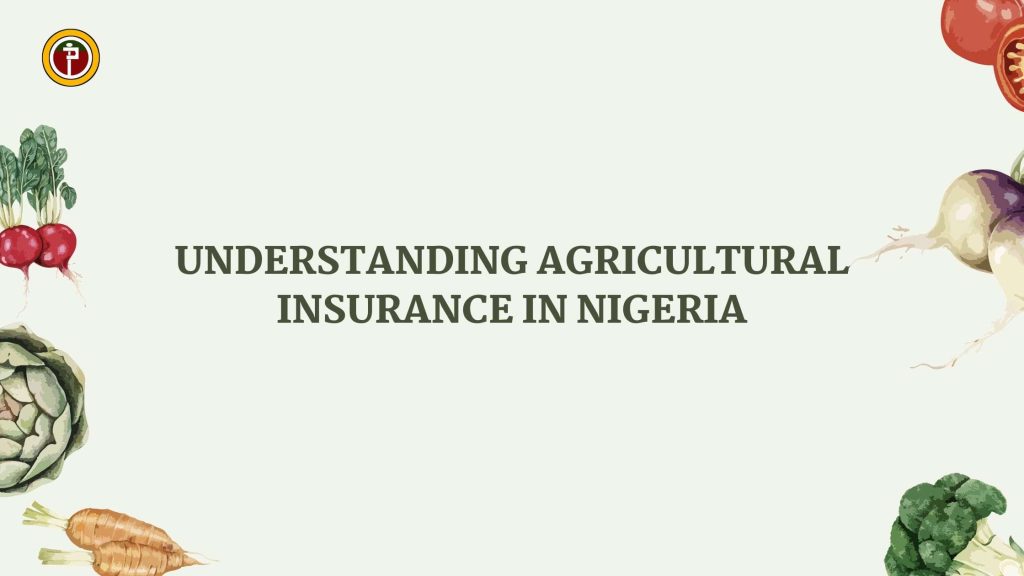Nigeria’s agricultural sector plays a pivotal role in its economy, employing millions of people and contributing significantly to the country’s GDP.
However, the sector faces numerous challenges, including unpredictable weather patterns, pests and diseases, farm invasions, and market volatility.
In the face of such risks, agricultural insurance emerges as a vital tool to protect farmers and ensure the stability and growth of the agricultural sector.
Challenges facing Nigerian Agriculture
Nigerian farmers face a multitude of challenges that can impact their livelihoods and the agricultural industry as a whole. Some of the most common risks include:
- Crop failure due to drought, flooding, or pests
- Livestock diseases and mortality
- Climate change and unpredictable weather patterns
- Market fluctuations and price volatility
- Limited access to credit and financing
- Cattle herdsmen farm invasion
These risks can result in significant financial losses, reduced productivity, and decreased food security. Agricultural insurance can help protect farmers from these risks and provide financial stability.
Understanding Agricultural Insurance
Agricultural insurance, simply put, is a risk management tool designed to protect farmers against losses resulting from unforeseen events such as droughts, floods, pests, diseases, and market fluctuations.
By providing financial compensation in the event of crop failure or loss, agricultural insurance helps farmers mitigate risks and recover from adverse circumstances, thereby promoting resilience and sustainability in agriculture.
Agricultural Insurance Landscape in Nigeria
In Nigeria, the concept of agricultural insurance has been gaining traction in recent years, albeit with some challenges. Historically, the sector has been underdeveloped, with limited awareness and understanding among farmers.
However, efforts by both public and private stakeholders have led to notable progress in the agricultural insurance industry.
Key players in the Nigerian agricultural insurance sector include, Nigeria Agricultural Insurance Corporation (NAIC), insurance companies, agricultural cooperatives, and international development organizations.
These entities work together to develop and implement insurance products tailored to the needs of Nigerian farmers.
Challenges Faced by Agricultural Insurance in Nigeria
Despite its potential benefits, agricultural insurance in Nigeria encounters several challenges, such as;
- Limited awareness and understanding among farmers
- Lack of adequate infrastructure and data makes it challenging to accurately assess risks and determine insurance premiums.
- High premium costs and affordability issues among smallholder farmers.
Benefits of Agricultural Insurance
Despite the challenges, agricultural insurance offers numerous benefits for farmers and the broader agricultural sector.
- Provids financial protection against losses,
- Helps farmers manage risks and invest confidently in their operations.
- Contributes to food security by ensuring a stable income for farmers, even in the face of adverse events.
- Promotes economic development and poverty alleviation in rural communities.
Future Outlook and Opportunities
Looking ahead, there is immense potential for the growth and expansion of agricultural insurance in Nigeria.
Emerging technologies, such as remote sensing and satellite imagery, offer new opportunities for risk assessment and product development.
Moreover, partnerships between public and private stakeholders can further drive innovation and increase access to agricultural insurance for smallholder farmers across the country.
In conclusion, agricultural insurance holds immense promise for safeguarding Nigeria’s agricultural future.
By addressing the challenges faced by farmers and providing financial protection against risks, agricultural insurance promotes resilience, sustainability, and prosperity in the agricultural sector.
While there are challenges to the adoption of agricultural insurance in Nigeria, there are also opportunities for growth and improvement.
Stakeholders, including government, private sector, and civil society organizations, must work together to promote the adoption of agricultural insurance and ensure the long-term sustainability of Nigerian agriculture.
Take advantage of the next article, subscribe now!
Have questions about claim settlements or need assistance with your insurance policy? Our team is here to help! Reach out to us via email at info@tplng.com or give us a call at 0905-776-6182. We’re committed to ensuring genuine claim settlements and supporting our valued members.
TPL, your satisfaction is our priority.


